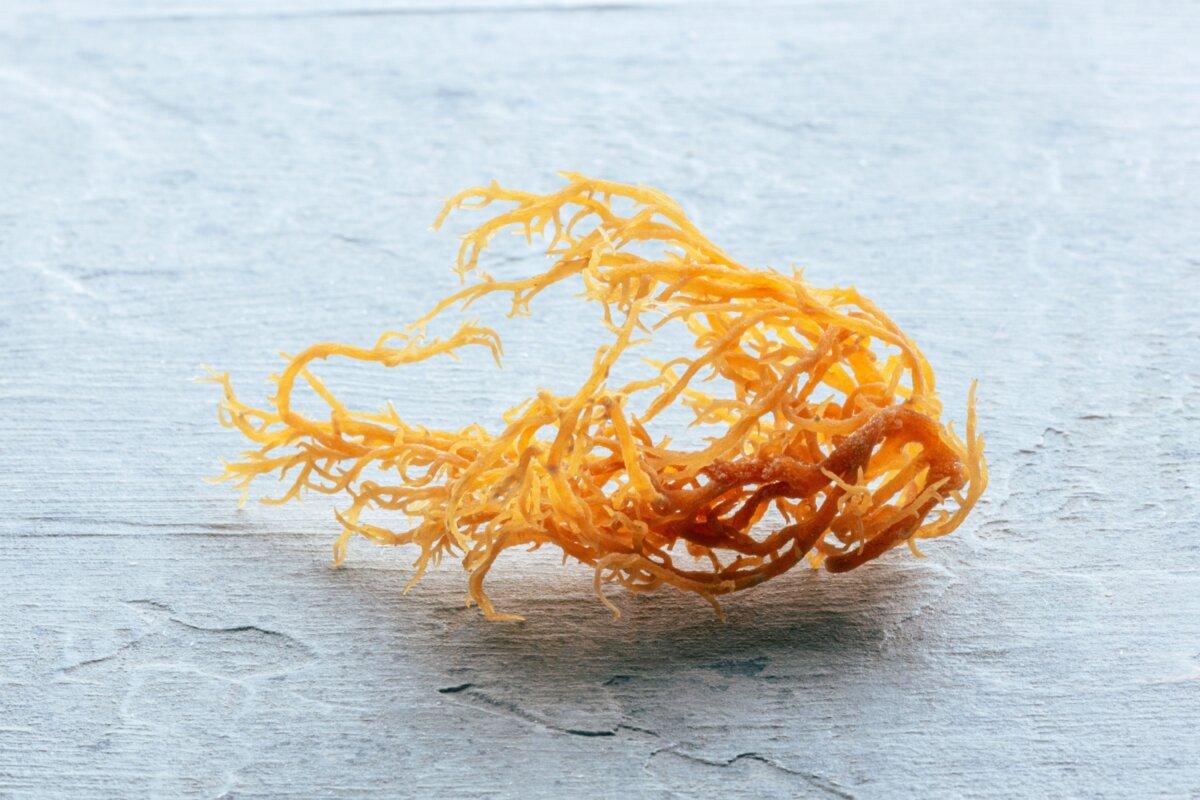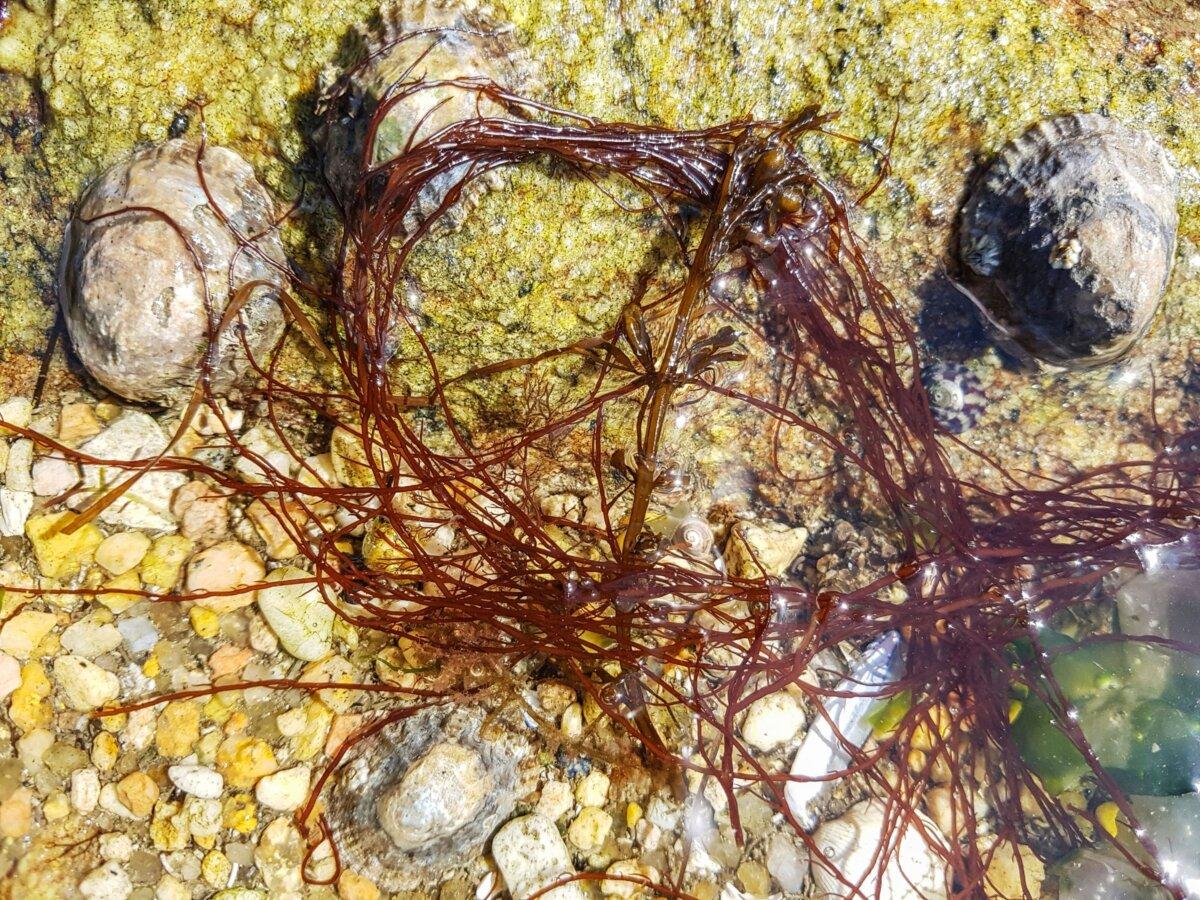 |
| Image Source: get.pxhere.com |
Sea moss, a centuries-old marine vegetable, is having its pedestal moment of popularity.
The latest fad ingredient to hit store shelves and internet search bars with a laundry list of health claims is a type of seaweed that’s been a coastal cultural staple for thousands of years. Sea moss is touted for its ability to aid in digestion, improve immunity and brain health, and support weight loss, among several other coveted benefits.
An extract from sea moss has long been used as an additive in food products for its thickening properties, but the moss itself is now available in gummies, gels, drinks, powders, and more, with an accompanying array of purported health benefits.
Do the claims hold any weight, and is it worth adding sea moss to your diet?
What Is Sea Moss?
Sea moss is a species of algae found along the coasts of North America, Europe, and the Caribbean. The sea vegetable is a nutritious food source and is high in essential nutrients, including vitamins A, E, and K, as well as minerals such as magnesium, calcium, and iodine.
It is believed that people have been harvesting and consuming sea moss for 14,000 years. A drink made of sea moss served as a source of nourishment during the Irish potato famine of the 1800s, and there is evidence sea moss was used medicinally in China dating back to 500 BC.
Types of Sea Moss
Sea moss is an umbrella term. Given the many corners of the globe where it grows, there is more than one variety of the algae, each with unique properties. Three species of sea moss are primarily used in food applications for texture purposes and nutritional benefits. The most commonly used types of sea moss are Chondrus crispus, Gracilaria, and Eucheuma cottonii.Chondrus crispus, also called Irish sea moss, is likely the most well-known of the three and is used in the food industry for its thickening properties. It’s a red alga that grows in the colder waters of the Atlantic Ocean on the coasts of Europe and North America. Irish sea moss is more challenging to harvest and is foraged via diving. It will only grow on rocks, so farming Irish sea moss is impossible, making it rarer than other varieties. Authentic Irish sea moss solely grows in the cold northern Atlantic waters and is more nutrient-dense than other sea moss varieties.
 |
| Irish sea moss. (Plateresca/Shutterstock) |
Gracilaria, sometimes referred to as Jamaican sea moss, grows in warmer water and is mainly used to make agar, a stabilizing agent in the food industry. It is primarily found in Asia, South America, Africa, and Oceania. Gracilaria is easily farmed in a pool or tank or cultivated on rope in the ocean. For this reason, Gracilaria is widely available and much easier to come across in stores than Irish sea moss.
 |
| Jamaican sea moss. (arousa/Shutterstock) |
Eucheuma cottonii is a source of carrageenan, which is used in industrial food production for its gelling properties. Carrageenan is a substance primarily used to emulsify and set food products, such as ice cream and jelly, and is abundant in the cells of sea moss. It is also used in healthcare and skincare items, including toothpaste, infant formula, and lotions. It is also a popular substitute for gelatin in vegan products. The carrageenan used commercially differs from the natural carrageenan found in Irish sea moss.
 |
| Eucheuma cottonii sea moss. (Afifa Asri/Shutterstock) |
Sea moss has been gaining popularity recently as a dietary supplement for its supposed health benefits. However, there is a difference between raw, nutrient-dense sea moss and its processed carrageenan byproduct used in food products. There is a marked difference in the nutritional value of natural sea moss that grows in the ocean and the varieties that are farmed and grown in a pool. Sea moss absorbs minerals from the surrounding environment, so its mineral composition is location-dependent.
Potential Health Benefits of Real Sea Moss
Research on sea moss is limited, particularly on the individual species, and the few existing studies there are were conducted on animals. Additionally, the vast majority of existing evidence is on seaweed rather than sea moss in particular. However, there are a few benefits supported by research:
Rich in Iodine
Sea moss is rich in iodine, a mineral required to make thyroid hormones in the body. A study found that Chondrus crispus contains very high levels of iodine that is also bioavailable. Sea moss offers an alternative to fortified table salt as an accessible source of iodine. Irish sea moss has the highest concentration of iodine.
Source of Prebiotics
A study published in 2015 found that rats fed a diet supplemented with sea moss saw an improvement in their gut composition and health. Findings indicated an increase in beneficial bacteria and a decrease in pathogenic bacteria in the gut microbiome.
Heart Healthy
One study found that sea moss may help lower low-density lipoprotein cholesterol levels in the blood. There is also evidence that it may have anticoagulant properties.
A Virility Tonic
A sea moss tea, made in the Caribbean, is believed to be an aphrodisiac and helpful in erectile dysfunction. A study found that Chondrus crispus increased testicular function in rats, potentially increasing their fertility and sexual activity.
May Increase Satiety and Promote Weight Loss
When combined with water, sea moss becomes gel-like and sticky, hence its use in food products. This may increase satiety and leave you feeling fuller longer. Sea moss also contains a compound called fucoxanthin that has been shown to support fat metabolism in rats.
Blood Sugar Regulation
Fucoxanthin has also been shown to control blood sugar and may mitigate glucose spikes, thus possibly helping prevent diabetes.
Are There Any Downsides to Sea Moss?
Despite its benefits, there may be some truth to too much of a good thing regarding sea moss. It is possible to consume excessive iodine, which can negatively affect thyroid health. There are also some safety concerns regarding both chemical and microbiological hazards in sea moss. Heavy metals from pollution may bioaccumulate in sea moss, which can increase your exposure to toxins, and microbial pathogens such as C. Botulinum may be present. There are also documented cases of some people having an allergic response to red algae. Given the limited research, it is best to enjoy moderate amounts of sea moss and any products containing it.
What to Know About Sea Moss Products
Is it worth adding a sea moss product to your diet? There are a lot of unknowns surrounding sea moss as a dietary supplement, and more research is needed before that question can be answered confidently. It is important to remember that not every health product containing sea moss deciphers which variety of sea moss it contains or where it was grown—both are essential factors that affect the quality and nutrition of the product. Before purchasing any products your favorite celebrity or social media influencer may be touting as a miracle panacea, it may be best to do your due diligence. Ensure the product’s authenticity, where the sea moss is sourced from, and whether it is farmed or wild.
Important Notice: This article was originally published at www.theepochtimes.com by Jennifer Sweenie where all credits are due.
Disclaimer
The watching, interacting, and participation of any kind with anything on this page does not constitute or initiate a doctor-patient relationship with Veripeudic.com. None of the statements here have been evaluated by the Food and Drug Administration (FDA). The products of Veripeudic.com are not intended to diagnose, treat, cure, or prevent any disease. The information being provided should only be considered for education and entertainment purposes only. If you feel that anything you see or hear may be of value to you on this page or on any other medium of any kind associated with, showing, or quoting anything relating to Veripeudic.com in any way at any time, you are encouraged to and agree to consult with a licensed healthcare professional in your area to discuss it. If you feel that you’re having a healthcare emergency, seek medical attention immediately. The views expressed here are simply either the views and opinions of Veripeudic.com or others appearing and are protected under the first amendment.
Veripeudic.com promotes evidence-based natural approaches to health, which means integrating her individual scientific and clinical expertise with the best available external clinical evidence from systematic research. By individual clinical expertise, I refer to the proficiency and judgment that individual clinicians acquire through clinical experience and clinical practice.
Veripeudic.com does not make any representation or warranties with respect to the accuracy, applicability, fitness, or completeness of any multimedia content provided. Veripeudic.com does not warrant the performance, effectiveness, or applicability of any sites listed, linked, or referenced to, in, or by any multimedia content.
To be clear, the multimedia content is not intended to be a substitute for professional medical advice, diagnosis, or treatment. Always seek the advice of your physician or other qualified health providers with any questions you may have regarding a medical condition. Never disregard professional medical advice or delay in seeking it because of something you have read or seen in any website, video, image, or media of any kind. Veripeudic.com hereby disclaims any and all liability to any party for any direct, indirect, implied, punitive, special, incidental, or other consequential damages arising directly or indirectly from any use of the content, which is provided as is, and without warranties.

